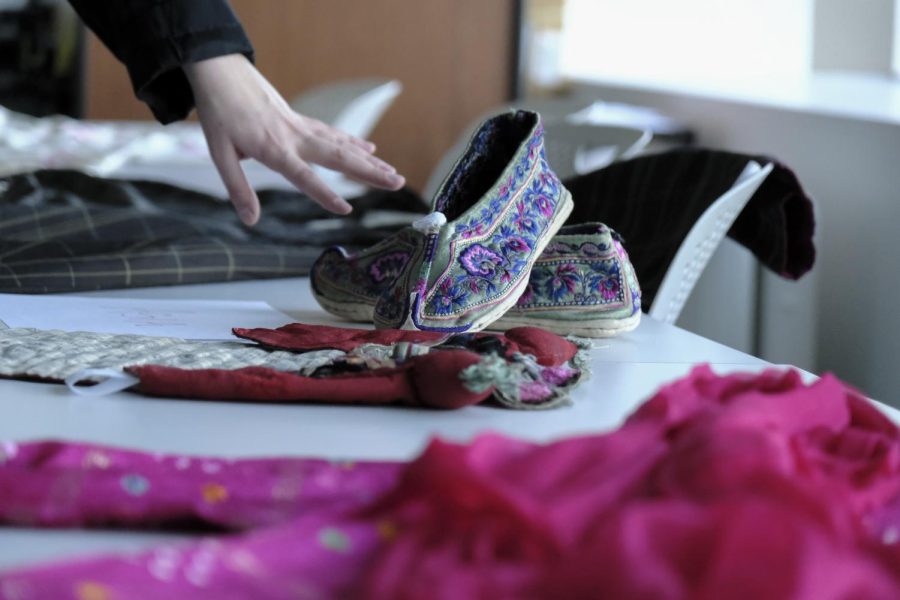Fashion Studies Department aim to teach ‘beyond the west’ as they continue to implement DEI into their lectures
May 4, 2023
Sophia Klun, a sophomore fashion studies major and intern at Columbia’s Fashion Study Collection, likes learning about topics that challenge the narrative that white people are the most important influencers in history and culture.
“I love courses that touch on topics that aren’t normally centered around the Western and the white narrative,” Klun said. “I love the participation in my courses, and I think the teachers that are putting in the work [are] really important, but I do think that there is more that needs to be done, and hopefully that comes soon.”
Some of the courses the department offers that implement DEI in fashion are: FASH 307: A History of Fashion in 100 Objects, FASH 306: Apparel Evaluation, FASH 309: Sourcing and Supply Chain, and many more.
In 2022, the Fashion Studies Department received a Diversity Equity and Inclusion Teaching Activism honors award for their incorporation of DEI teachings into the department’s course curriculum.
The Chronicle checked in with students to see how they were being impacted a year later.
DEI is being prioritized in society at an increasing rate — in the workforce, 79% of respondents to a 2020 National Association of Colleges and Employers survey indicated this is “very important.”
Columbia offers a reverse mentoring program where faculty can request mentoring in a DEI topic by a student with “expertise on the basis of studies and/or lived experience,” according to a recent paid article from Business of Fashion.
Chair of Fashion Studies Colbey Reid said a DEI safe space in fashion is important now more than ever.
“Ethics are important, and fashion, like a lot of institutions and industries in the U.S., needs to reckon with the history and future legacy of its racist, colonial, environmentally destructive, extractive, sexist systems,” Reid said. “But fashion is, first and foremost, about style and wearing things that push the boundaries of style because that’s how we push the boundaries of humanity forward in ways we can get excited about.”
Reid explained the importance of exposing people to fashion beyond what’s being shown in the media.
“A certain version of fashion—the version I’m into—exposes us to differences, and these differences are sometimes a real lifeline to people who feel in some way crushed by the same old options for how to be a person,” Reid said.
Mariana Venturella, a senior fashion studies major, said it is important to look around the world for fashion inspiration.
“Fashion starts in the East; it’s the oldest part of the world and it’s time to go back to our roots,” Venturella said. “We all draw inspiration from each other, and we draw inspiration from where it started, so it’s important to highlight that.”
Through the Fashion Study Collection, students can study an array of pieces from all over the world.
“What a lot of people come into the [Fashion Study] Collection for are things that either teachers touch on in their classes or they want to see fashion in a commercial sense,” Klun said. “But it is amazing to see the development of fashion and styles in other countries because something you might be familiar with from your own heritage, from your own culture, could exist in another culture, and you have no idea.”







